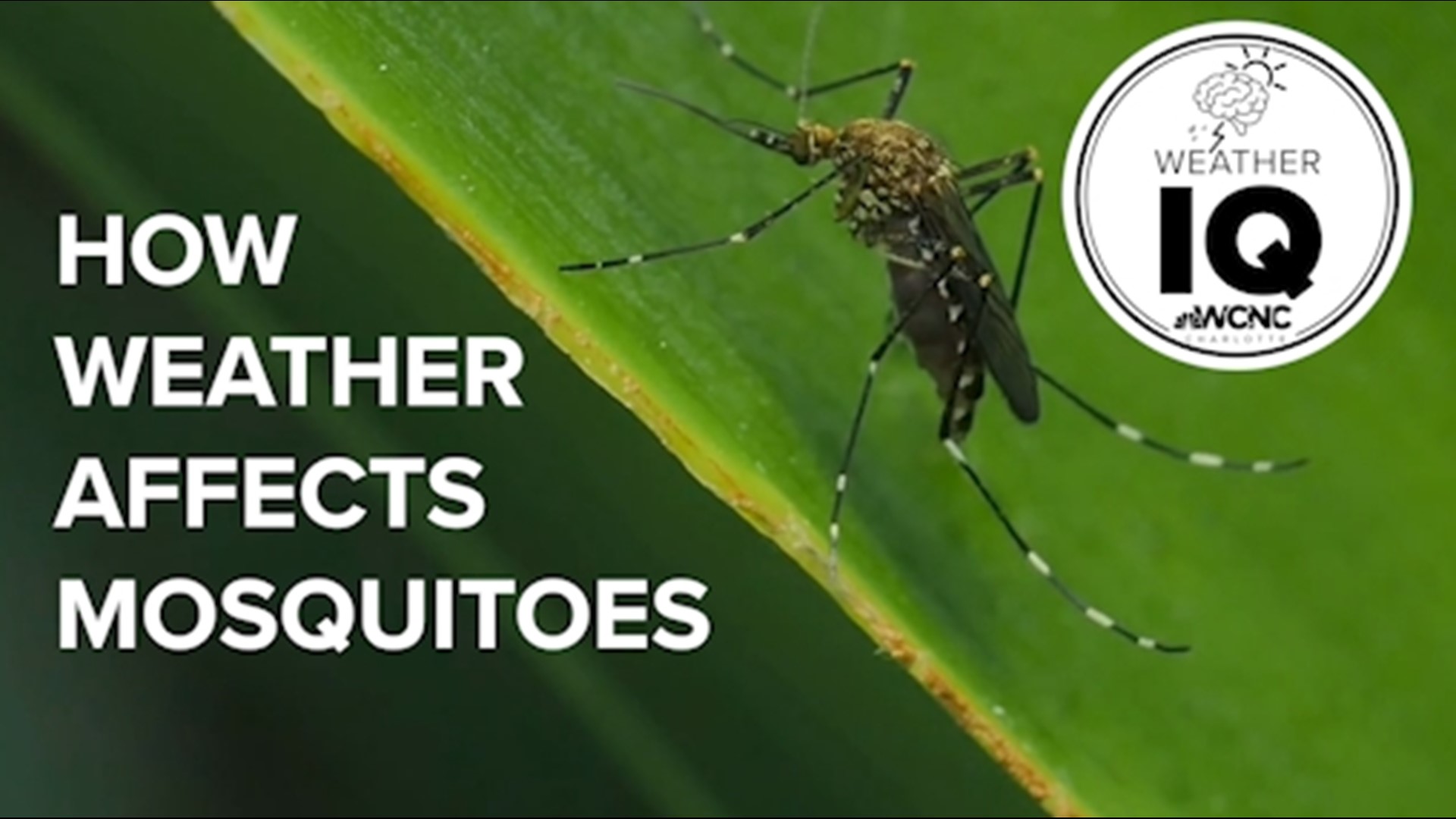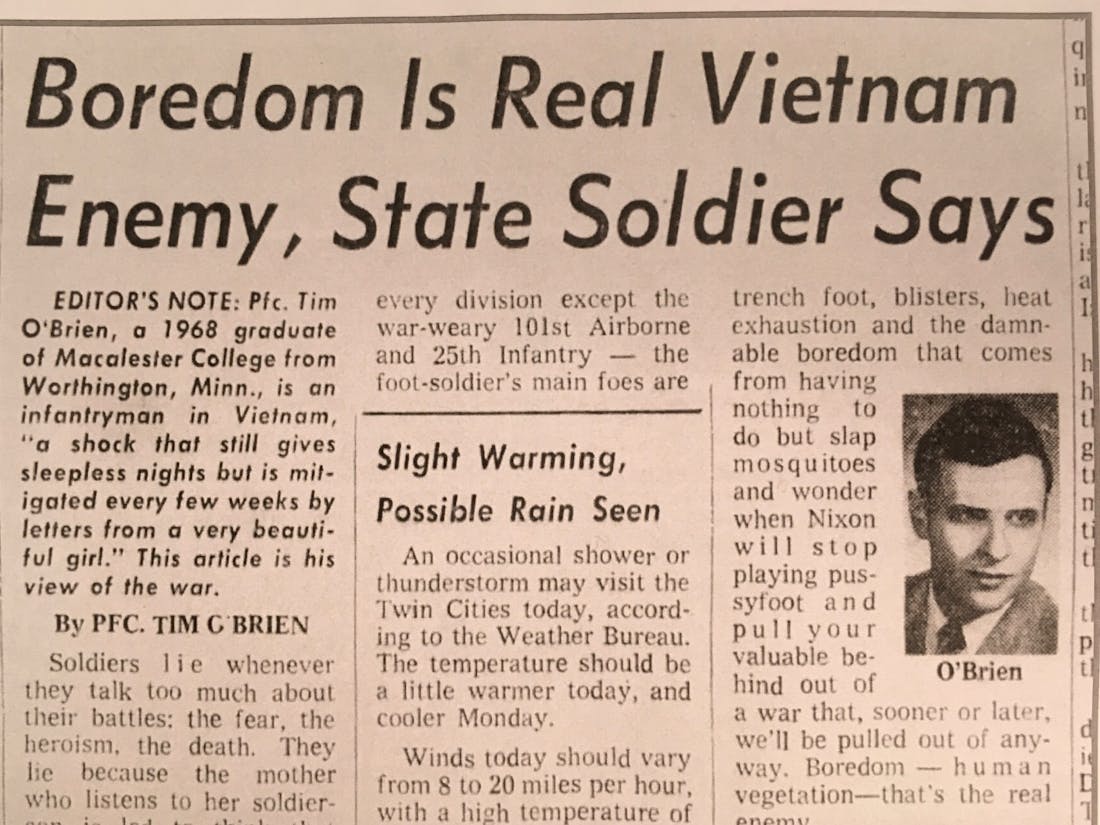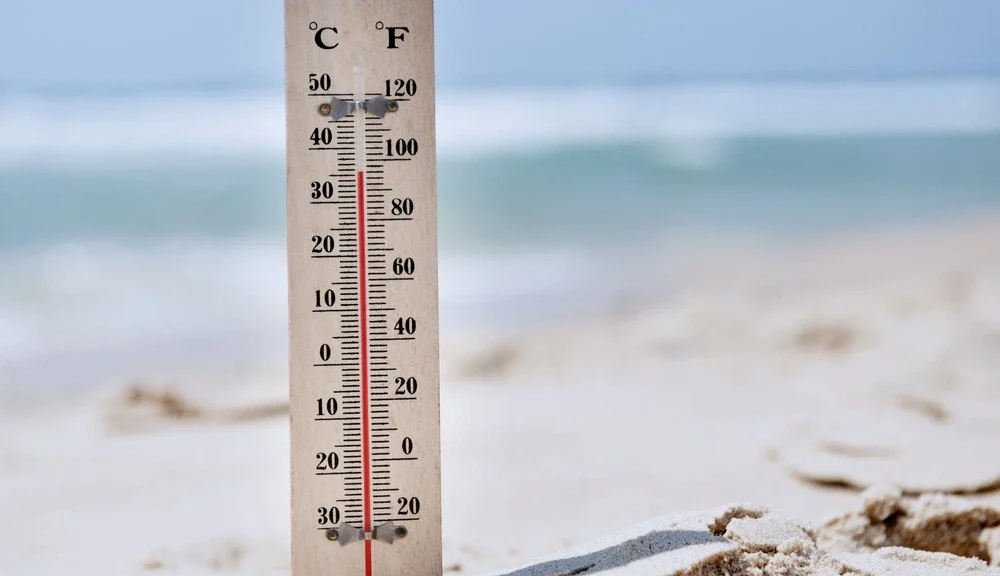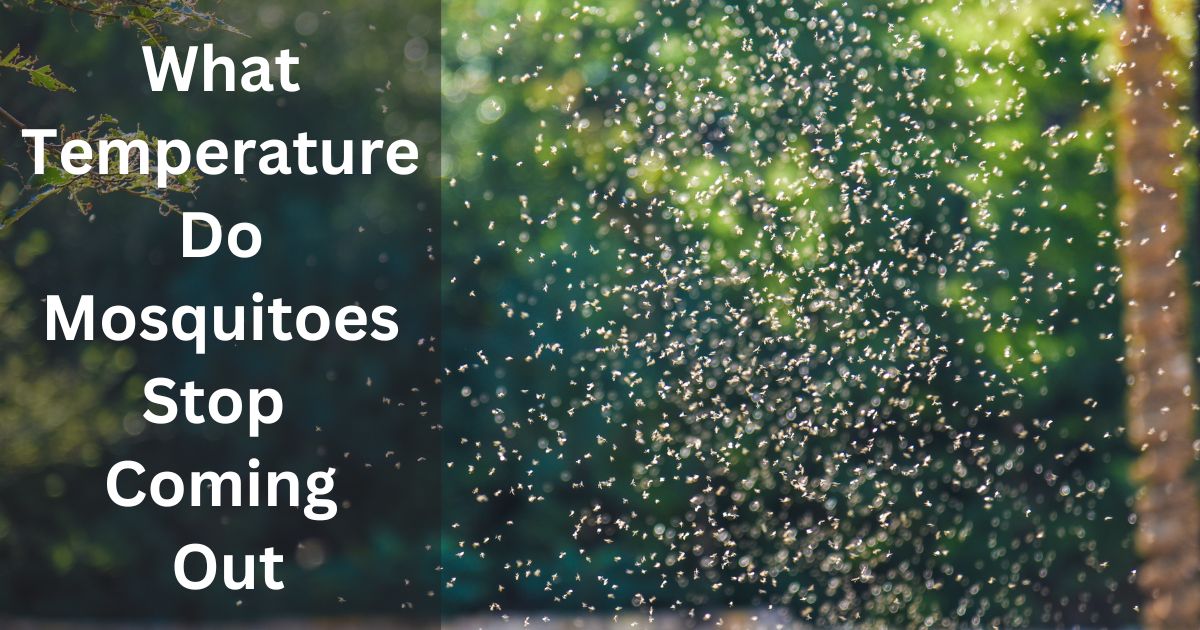Mosquitoes stop coming out when the temperature drops below 50 degrees Fahrenheit. During colder weather, mosquitoes become less active and eventually die off.
The decrease in temperature affects their metabolism, making it difficult for them to survive and breed effectively. This natural phenomenon provides relief from mosquito bites and allows for outdoor activities without the nuisance of these pests. As winter approaches and temperatures continue to drop, the mosquito population diminishes, offering a respite from their presence until the warmer months return.

Credit: www.wcnc.com
Temperature Thresholds For Mosquito Activity
Mosquito activity decreases significantly when the temperature drops below 50°F, causing them to stop coming out. In colder temperatures, mosquitoes become less active and are unable to fly, reducing their presence outdoors.
Ideal Conditions For Mosquito Emergence
In warm environments, mosquitoes thrive, with activity peaking between 80°F and 90°F. Moisture levels also play a vital role in providing suitable breeding grounds for mosquitoes.
Critical Low Temperatures That Halt Activity
Mosquito activity significantly decreases when temperatures drop below 50°F. At below 40°F, mosquitoes become inactive and are less likely to emerge. Maintaining temperatures above 50°F can prolong mosquito activity, making it essential to implement preventive measures even during cooler seasons.
Seasonal Behavior Of Mosquitoes
Mosquitoes stop coming out when temperatures drop below 50 degrees Fahrenheit. As the weather cools, they become less active and eventually go into hibernation during winter months. This natural decrease in temperature signals a decline in mosquito activity.
Summer Surge
Mosquitoes are most active during the summer months, particularly when the temperature consistently reaches above 50°F. During this time, their breeding and feeding activities are at their peak, making it essential to take preventative measures to avoid mosquito-borne diseases and discomfort.
Winter Dormancy And Survival Tactics
As the temperature drops below 50°F, mosquitoes enter a period of dormancy. While many mosquitoes die off during the winter, some species have developed survival tactics to endure the cold. They seek shelter in protected areas, such as hollow logs or burrows, and can even withstand freezing temperatures by entering a state of suspended animation.
Additionally, mosquito eggs can survive the winter and hatch when temperatures rise again. Therefore, it’s crucial to continue mosquito control efforts even during the colder months to prevent an influx of mosquitoes when the weather warms up.
Daily Activity Patterns
Daily Activity Patterns of mosquitoes play a significant role in determining the best time to avoid mosquito bites. Understanding the peak biting hours and times of least activity can help in planning outdoor activities to minimize the risk of mosquito bites.
Peak Biting Hours
Mosquitoes are most active during the early morning and evening hours. The peak biting times for most species are during dawn and dusk. It’s important to take precautions during these hours to avoid being bitten.
Times Of Least Activity
Mosquitoes are least active during the middle part of the day when the sun and heat are at their peak. During these hours, mosquitoes are less likely to bite, providing a window of opportunity for outdoor activities with reduced risk of mosquito bites.

Credit: www.startribune.com
Geographical Variations In Mosquito Seasonality
Geographical variations in mosquito seasonality affect when mosquitoes stop coming out due to temperature changes. Mosquito activity decreases when temperatures drop below 50°F, leading to a decline in their presence during colder months. Understanding these temperature thresholds helps in managing mosquito populations effectively.
Mosquito Season In Various Climates
Mosquitoes are a year-round problem in some areas, but in others, they only emerge during certain seasons. The temperature and humidity levels play a significant role in determining when mosquitoes will be active. In colder regions, mosquito season typically lasts from late spring to early fall, while in warmer areas, mosquito activity can be year-round.
Case Studies From Different Regions
Geographical variations in mosquito seasonality can be seen across the globe. For instance, in Africa, mosquito season coincides with the rainy season, which is usually from April to November. In Australia, mosquito season is during the summer months from December to March. In the United States, mosquito season varies depending on the region. In the southern states, mosquito season can begin as early as March and last through November. In contrast, the northern states may only experience mosquito season from May to September.
Factors Affecting Mosquito Seasonality
Apart from temperature and humidity, other factors can also affect mosquito seasonality. The availability of breeding sites, such as stagnant water sources, can impact the population of mosquitoes in a particular area. The use of mosquito control measures, such as insecticides, can also affect the number of mosquitoes in a given region. It is important to note that mosquito seasonality can vary from year to year due to weather patterns and other environmental factors. Therefore, it is essential to stay informed about mosquito activity in your area and take necessary precautions to prevent mosquito bites.
Impact Of Weather On Mosquito Lifecycles
Mosquitoes are cold-blooded insects that are highly influenced by environmental factors such as temperature, rainfall, and humidity. The temperature, in particular, plays a significant role in mosquito lifecycles, including their breeding, development, and survival. Understanding how weather conditions affect mosquito behavior can help you take the necessary precautions to prevent mosquito bites and reduce their population in your area.
Effect Of Rainfall And Humidity
Heavy rainfall and high humidity levels provide ideal breeding conditions for mosquitoes. Female mosquitoes lay their eggs in stagnant water, and the larvae require water to develop into adult mosquitoes. During periods of heavy rainfall, water accumulates in various containers such as buckets, flowerpots, and drains, creating a suitable breeding ground for mosquitoes.
Similarly, high humidity levels increase the survival rate of mosquitoes by preventing dehydration. Mosquitoes require moisture to survive, and humid environments provide adequate moisture to sustain their lifespan. Therefore, areas with high humidity levels and frequent rainfall are more likely to have an increased mosquito population.
Temperature Influence On Lifecycle Stages
The temperature also affects the lifecycle stages of mosquitoes, including their breeding, development, and survival. Mosquitoes require a minimum temperature of around 50 degrees Fahrenheit to become active. Once the temperature reaches around 80 degrees Fahrenheit, the mosquito lifecycle accelerates, and the eggs hatch into larvae within 24-48 hours.
At temperatures below 50 degrees Fahrenheit, mosquitoes become less active, and their development slows down. When the temperature drops below 40 degrees Fahrenheit, mosquitoes enter a state of hibernation, during which their metabolism slows down, and they become less active. At temperatures below freezing, mosquitoes cannot survive, and their populations decline significantly.
In conclusion, the temperature, rainfall, and humidity levels significantly impact mosquito behavior and population. Understanding these factors can help you take the necessary precautions to prevent mosquito bites and reduce their population in your area.
Methods To Prevent Mosquitoes In Cold Weather
When the temperatures drop, many people assume that they no longer have to worry about mosquitoes. However, it’s important to know that mosquitoes do not simply disappear when the weather gets cold. In fact, some species of mosquitoes can survive in cold weather and emerge when the conditions are right. Therefore, it’s crucial to be aware of the methods to prevent mosquitoes in cold weather.
Home-proofing Against Mosquitoes
One effective method to prevent mosquitoes in cold weather is to home-proof against them. This includes ensuring that all windows and doors are properly screened to prevent mosquitoes from entering your home. Additionally, eliminating any standing water around your property, such as in flower pots, bird baths, or clogged gutters, can help reduce mosquito breeding grounds. Utilizing mosquito nets over beds and outdoor sitting areas can provide an added layer of protection.
Effective Cold Weather Repellents
Using cold weather repellents can be an effective way to prevent mosquitoes from bothering you during the colder months. A variety of repellents, such as DEET-based sprays, citronella candles, and essential oils like eucalyptus and lavender, can help keep mosquitoes at bay. Wearing long-sleeved clothing and pants when spending time outdoors can also act as a physical barrier against mosquito bites.
Scientific Insights On Mosquito Inactivity
Mosquitoes are known to be active in warm weather, but have you ever wondered at what temperature they stop coming out? Let’s delve into the scientific insights on mosquito inactivity and explore the fascinating world of mosquito behavior in relation to temperature.
Research On Temperature And Mosquito Behavior
Studies have shown that temperature plays a crucial role in regulating mosquito activity. According to research, mosquitoes are most active when temperatures are between 80°F and 90°F. As the temperature decreases, their activity levels diminish significantly, eventually leading to inactivity.
Studies On Mosquito Endurance In Cold
Interestingly, studies have also examined the endurance of mosquitoes in cold temperatures. Research has indicated that when the temperature drops below 50°F, mosquitoes become increasingly inactive. Furthermore, when temperatures plummet to around 40°F and below, mosquitoes are unable to function effectively, leading to a significant reduction in their activity levels.

Credit: mosquitojoe.com
Practical Tips For Mosquito-free Environments
Experience a mosquito-free environment by knowing that mosquitoes stop coming out when temperatures drop below 50°F. Implement proper mosquito prevention measures to keep these pests at bay and enjoy your outdoor spaces comfortably.
Best Practices For Mosquito Control
Innovative Products And Solutions
Practical Tips for Mosquito-Free Environments: To create a mosquito-free environment, it’s essential to implement effective mosquito control strategies. Here are some practical tips to keep mosquitoes at bay: – Eliminate standing water: Mosquitoes breed in stagnant water, so regularly empty or change the water in containers like flower pots, bird baths, and gutters. – Use mosquito repellents: Apply DEET-based repellents on exposed skin to repel mosquitoes effectively. – Install screens: Keep doors and windows screened to prevent mosquitoes from entering your home. – Use mosquito nets: Sleep under a mosquito net to protect yourself from mosquito bites at night. – Maintain your yard: Trim vegetation and mow the lawn regularly to reduce mosquito resting areas. – Consider natural solutions: Plant mosquito-repelling plants like citronella, lavender, and marigold in your garden. – Utilize mosquito traps: Set up mosquito traps that use UV light or CO2 to attract and capture mosquitoes. By following these best practices and utilizing innovative mosquito control products and solutions, you can create a more enjoyable and mosquito-free outdoor and indoor environment.
Frequently Asked Questions
What Temperature Keeps Mosquitoes Away?
Mosquitoes are kept away when the temperature drops below 50°F. Cooler temperatures reduce mosquito activity.
What Month Do Mosquitoes Go Away?
Mosquitoes typically go away when the first freeze of winter occurs. This usually happens in late autumn.
Do Mosquitoes Come Out In 90 Degree Weather?
Mosquitoes thrive in 90-degree weather, making them more active and likely to come out.
Conclusion
To sum up, understanding the temperature threshold for mosquitoes can aid in effective pest control. By knowing when mosquitoes stop coming out, you can plan ahead to protect yourself and your environment. Remember, cooler temperatures in winter help reduce mosquito activity, providing relief from these pesky insects.
Related posts:

I’m MD Tanvir, and I bring years of expertise gained from working closely with pest control companies to the forefront. My journey in the industry has inspired me to launch Bug Battler, a platform aimed at equipping people with the know-how to combat pests autonomously. Through Bug Battler, I aim to empower individuals with practical insights to tackle pest infestations effectively.

